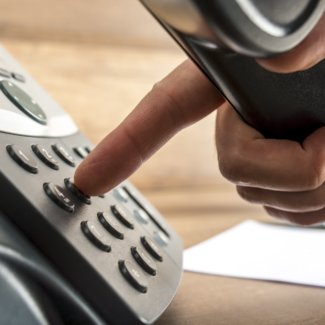
At some point during your job search process, you are going to be required to provide a list of references. You might be asked to include them on an online application, during your first in-person interview, or before the prospective employer can invite you to the next step of the interview process. Now that you know this, it’s most practical (and less stressful) to orchestrate your updated list of references today and not wait until the morning of an in-person interview.
Here are some tips to help create the best reference list possible:
Contact Your References First (Before You Have Others Contact Them)
Just because someone told you four years ago that you could include him/her as a reference, doesn’t mean you can still include him/her today. Their job title, contact info, and memory of you may have changed over the years. Contact each reference you want to use for your list and ask if you may (still) include that person on your list. If they have a vague recollection of you or what you did at your former job, but still say they will serve as a reference, thank them and then delete them from your list. There is no reason to have a reference on your list if the person does not really know you, your work ethic or your skills.
Compile a List of 3 to 5 References
One or two references are not enough; more than five is too much. Your reference sheet is a list of individuals who will speak highly of you. It’s not to prove you’re a name-dropper. It is not a list of people in high-ranking or powerful roles who attended a private party where you worked part-time as a bartender. Each reference should be able to place your name with your face – and with your disposition!
- You can include a relative, as long as that cousin, uncle, or sibling has a different last name from yours. If contacted, the relative would simply say he/she grew up in the same neighborhood (or school) with you and has known you all your life.
- Ideally, your list will include at least one reference from a recent
- Be careful when including a reference from your current employer and only include someone that you trust implicitly. Plenty of people have lost their jobs while looking for a new job because the word got out that they wanted to quit.
Seven Things You’ll Need for Each Reference + One Thing You’ll Really Want
In addition to the reference’s name, you’ll want to include:
- his/her title,
- the name of their employer,
- the city and state where they work,
- their email address, and
- their phone number.
When building your reference page, include direct quotes from some of your references. Send them an email and ask them if they would write a few sentences about you that you could include on your reference sheet. You are not asking them to write a full-length reference letter; you simply want a few sentences from them. By including this unique component directly on your reference sheet, often times the prospective employer will simply read those quotes and not bother to call the reference directly.
Your reference sheet should match your resume and cover letter in layout, design, paper, and font. Bring a copy of it with you on each interview. At the end of the interview, hand a copy to the person who interviewed you and say, “Please feel free to contact my references!” It’s a nice way to end the interview, and it shows that you are organized and well-prepared.
